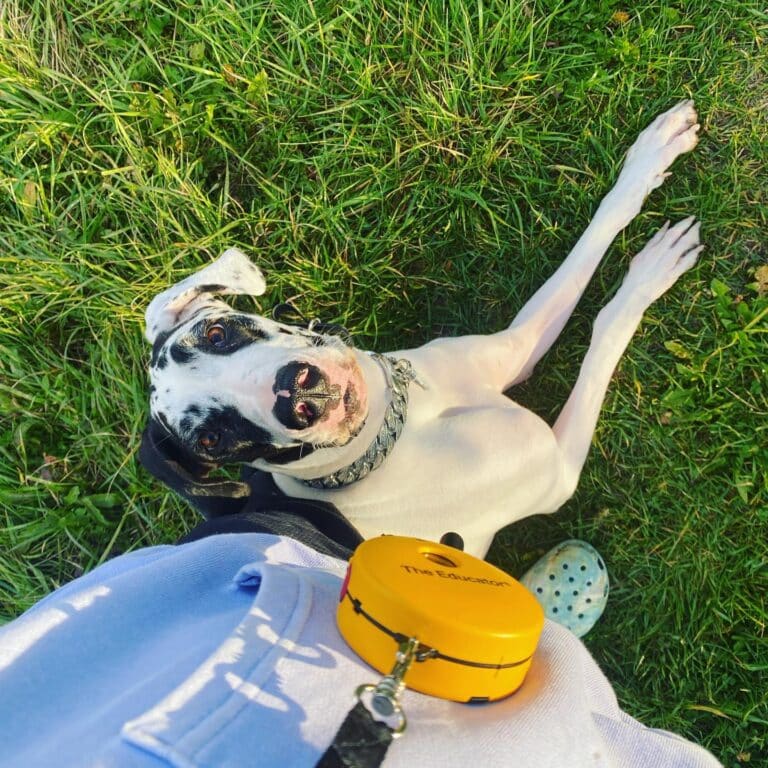Can You Fix My Dog that has Been Messed Up By Another E-Collar Trainer?

Written by Larry Krohn, Professional Dog Trainer
This is a question that I get asked at least 3 or 4 times a week. The answer is yes, absolutely. In fact, at one point in my training career more than half of the dogs I was training had already been through another e-collar program with bad outcomes. Most of the time it was nothing but e-collar corrections and punishment using higher level stimulations to either get the dog to perform a desired behavior or to stop the dog from performing an unwanted behavior. Unfortunately, this is common. Unskilled trainers hiding behind a tool that does amazing things in the right hands but can definitely create problems in the wrong hands.
I have been very outspoken about the misuse of the e-collar and protecting our rights to use the dog training tools that we choose to implement in our training programs. If we are to have the right to choose our tools then we must continue to educate all dog owners and trainers on the proper use of this amazing tool and show its benefits as transparently as possible, but we must also police the bad and stop people from misusing and abusing this tool even when the intentions are good. It is a must if we are to keep the e-collar in our tool box. Hold people accountable, not the tool.
Anyone that knows me or has seen me work with my dogs or my clients’ dogs knows that the well-being of the animal comes first. Always have compassion for the dog and never do anything behind closed doors that you would not do in front of a public audience. I love dogs, all dogs and I also use e-collars on every single dog I train, not for corrections and punishment but as a beautiful language that the dog can understand clearly. Once that is in place, it opens up a life of off leash freedom for a dog, which is what they love and deserve.
Take just one or two weeks to teach the dog the language and you will be able to use the e-collar to make all obedience better, faster, and sharper while stopping unwanted behavior quickly and without creating conflict or pain to the dog. It’s that simple. The funny thing is that when taught properly you will rarely need to use the e-collar. It just becomes that just in case safety device for a dog off leash.
Here is an example of a dog that was mistreated with an e-collar and an owner that was dead set against using the tool ever again. That all changed very quickly by showing both dog and owner the right way. I chose this case for a couple reasons. First, the owner was very determined never to use an e-collar again and because the dog really was abused in many ways but especially with the e-collar. As bad as it was, this dog, like all dogs, changed very fast when shown the right way.
A few years ago I met with a woman at her home to work with her female Pitbull. The dog had aggression issues toward other dogs. The woman informed me that she had recently spent $4700 at another Nashville trainer only to have the dog come back worse than she was before. I knew the trainer. I also knew the trainer had no little experience with difficult dogs, and furthermore, I knew the trainer had no ability with the e-collar. This trainer had destroyed many dogs with the e-collar that would end up at my home. Fortunately, this trainer eventually asked for my help, which I was happy to provide at no charge, as it was important to me that the misuse of the e-collar stopped and that the harsh tactics on the dogs he was training also stopped.
We sat down and discussed what the woman’s expectations were for her dog. She made it very clear that she did not want to use an e-collar. When I asked why she told me about the problems with the other trainer I just mentioned above. I said no problem. I never push anyone toward e-collar training if they don’t want it but once they see how I use it they always decide to add the e-collar to the training.
This client was no different. We had a great first lesson. At the second lesson she told me she wanted to give the e-collar another shot. I asked her why and she said it was after seeing how I handled her dog, seeing what my dogs look like and how they acted, and meeting a few of my clients in the neighborhood that she was comfortable with me doing so. She asked if I could fix the problems the last trainer created with the abusive e-collar work. I said absolutely. I do it all the time.
She asked me to show her how the dog would respond to it after having a very bad experience. This dog already trusted me and was working well with me because of the work we did at the first lesson. I put the e-collar on the dog and we started. The dog worked on a number 2 out of 100 on the E-Collar Technologies Mini Educator. Very sensitive, as many dogs are. At first, when she felt it she froze like a dog that is trained with an underground fence. She did not have experience with an underground fence but did have experience in getting blasted on high levels. I worked as I do any other dog. At first she would not take food as a reward but that changed after 5 minutes. The dog looked great and was moving about beautifully. She almost seemed relieved that nothing bad happened. This dog went from experiencing the e-collar in a very negative way, dealing with pain and confusion, to experiencing low level barely noticeable sensations paired with food and celebration. The dog has the ability to change its mindset very fast when shown a different way. I stopped after a few minutes to instruct the owner as I always do, except I usually do that first.
We started the role playing. The owner held the collar and I started teaching her just like we had discussed. She was surprised by how light the stimulation was. After she began understanding the timing and the mechanics, I placed the receiver in my hand. She searched for my level. I did not feel the stimulation until the-collar was in the high 30’s. She practiced on me. She made some mistakes with the timing as most do but we worked through it. I would become less compliant with poor timing as the dog would and once the client got her timing and responsiveness correct we put the e-collar back on the dog.
We reviewed the process. She gave the Come command and guided the dog with the leash. As she tapped the e-collar right after the command, the dog yelped loudly. We realized that the remote was left on the high 30’s from when she was working me. The woman was devastated and upset. I took her by the arm, looked her straight in the eye, and said it’s ok, watch me. I took the dog and put the e-collar back on a 2. The dog went right back to normal and was still taking food. The terrible mistake was not that terrible. Even though this dog had been through bad e-collar training she recovered after just a few minutes of proper training.
This case is a perfect example of how all dogs respond that have had bad experiences with the e-collar. I work with many dogs that have been through the same situation. They all come around and come around fast. I do not do anything different. I treat every dog with care and compassion and work on building the dog up, not breaking them down.
You also saw that we made a big mistake here. It was my mistake not the client’s. I should have double checked the stim level, but I did not. You will make mistakes. We all do. Don’t dwell on it, just move forward and everything will be alright.





